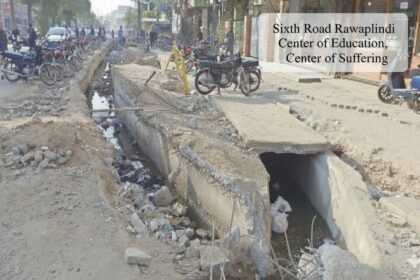
Character Building is More Important than Education
By: Zaheer Ahmed Awan
In today’s rapidly changing world, education is often seen as the ultimate key to success. Parents dream of sending their children to the best schools, and society takes pride in producing doctors, engineers, and professionals. But one crucial element has been forgotten character building, or what we call tarbiyah in Islam. Education without moral training is like a body without a soul. It produces intelligent minds but not responsible humans.
Our religion, Islam, places character training even before education. The Holy Prophet Muhammad (peace be upon him) first nurtured and trained his companions morally and spiritually before teaching them. Their training was rooted in truth, humility, justice, and respect for others values that built the foundation of an ideal Islamic society. The Prophet said, “I was sent only to perfect good character.” This single saying defines the essence of education in Islam.
Unfortunately, in Pakistan and many other Muslim societies today, education has been reduced to rote learning and exam results. Students learn how to earn degrees but not how to live as responsible citizens. Schools and parents are more concerned with grades than with behavior. As a result, we have a growing generation that is technically skilled but morally weak. They know how to argue, but not how to listen; they know how to succeed, but not how to serve.
The First Twelve Years The Foundation of Character
Psychologists and education experts around the world agree that the first twelve years of a child’s life shape their entire personality. What a child learns during this period truth, honesty, patience, respect, or dishonesty and arrogance stays with them forever. If these early years are spent without moral guidance, the child grows up without understanding right from wrong.Our schools must therefore make moral training an essential part of the curriculum from the first grade. Students should not only learn science, math, and language, but also honesty, discipline, empathy, and respect. They must learn that being a good human being is more important than being a successful professional.
The Social Consequences of Lack of Training The absence of proper moral training is the root cause of many of our national problems. Every day, we hear of teachers physically or sexually abusing students, doctors mistreating patients or neglecting their duties in government hospitals while focusing on private clinics, and police officers exploiting citizens for bribes.In offices, courts, land departments, and administrative institutions, corruption and nepotism have become common. Politicians prioritize family interests over national service. There is hardly a single department in Pakistan today where work can be done without recommendation, bribery, or personal connections. This is not due to lack of education it is due to the absence of character training. The public’s daily outcry reflects a deep moral crisis rather than just an administrative one.
Where We Stand as a Nation Pakistan today faces a serious moral collapse. According to global studies, Pakistan ranks among the nations struggling with dishonesty, corruption, and lack of civic sense. Every profession from politics to medicine, from education to law has been affected by moral decay. We have professors without patience, lawyers without ethics, doctors without compassion, and leaders without integrity. These are the results of an education system that focuses only on degrees, not on decency.
International Examples of Character-Based Education If we look around the world, the most advanced and peaceful nations are not just educated they are morally trained.
- Finland focuses its early education on emotional and social development before introducing formal exams.
- Japandevotes the first six years of schooling to character and discipline; students clean their schools to learn humility.
- Singapore has made “Character and Citizenship Education” a mandatory subject to cultivate honesty, tolerance, and civic sense.
These nations understand that the strength of a country lies not in its economy, but in the character of its people.
Islam’s Model of Training Islamic history is full of examples where moral training transformed entire societies. The Prophet (PBUH) turned tribes divided by hatred into a united, compassionate Ummah.His companions were living examples of truth and justice. The great scholars of Islam from Imam Abu Hanifa to Imam Ghazali taught that knowledge without character is dangerous.The Role of Parents and Teachers Parents and teachers are the main architects of a child’s moral foundation. Parents must spend time guiding their children with love and trust, while teachers must act not just as instructors but as role models. Their own behavior honesty, punctuality, humility becomes the child’s first lesson in ethics.What Pakistan Needs Now
The government must immediately integrate character and moral training into the national education policy. A “National Tarbiyah Board” should be established to design moral curricula, monitor ethical standards, and ensure implementation in all public and private institutions.A nation cannot survive on laws alone; it needs morality to give those laws meaning. As Hazrat Ali (RA) said: “A society can survive without faith, but not without justice.” Justice begins with the moral training of every citizen.Education builds the mind; training builds the soul. Degrees may earn a living, but only good character earns respect and trust. If Pakistan truly wants to progress, it must prioritize character building alongside education.
Let us raise a generation that values truth over lies, service over greed, and integrity over corruption. Only then will we become not just an educated nation, but a truly civilized one.











